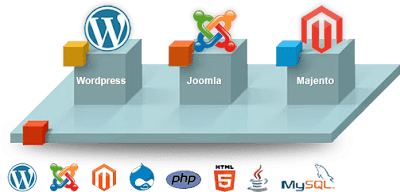CMS or otherwise known as content management system enables users to manage their website content without any technical training. This is an uncomplicated system that makes modifying, inserting and editing content extremely easy. You can go to the webpage you want to edit, edit that page using a word processor-like interface, save the transformations you have made and your website will be frequently updated.
Utilizing content management can result in various
advantages but the major reason for using it is content creation and editing. A
Content Management System or CMS website development comprises of multiple
features and functions. In a nutshell, a CMS is software is used in managing
websites. It allows the easy addition of flexible modules like web pages,
forums, posts, plug-in etc. It also makes it equally easy to modify and remove
modules.
In the modern scenario CMS website development is
even more complete; with multiple functions that strengthen its importance in
the web development business. They are adaptive and loaded with features such
as social networking, blogging, e-commerce business facilities, and more. Some
globally popular content management systems that make the websites nowadays
more dynamic include Wordpress, Drupal, Joomla and many more. Most of them are
PHP based while some developed in DOT Net.
Content management systems (CMS) also serves as an
electronic document and web content at enterprise level where the contents can
be easily be reused across different applications together with managing the
contents during its entire cycle from creation to publication. Businesses can easily
be benefited with the presence of both good website design as well as CMS
website development as it attracts web traffic thus making the website search
engine popular and, on the other hand, CMS can ease the functioning of customer
relationship management systems as well.
Sign up here with your email

ConversionConversion EmoticonEmoticon